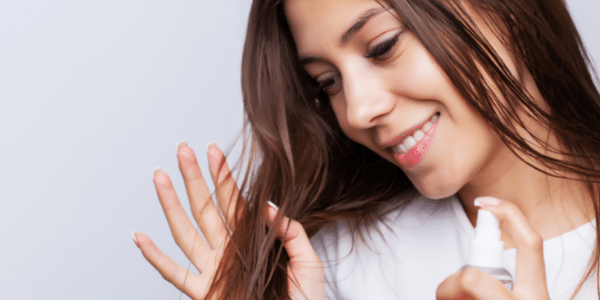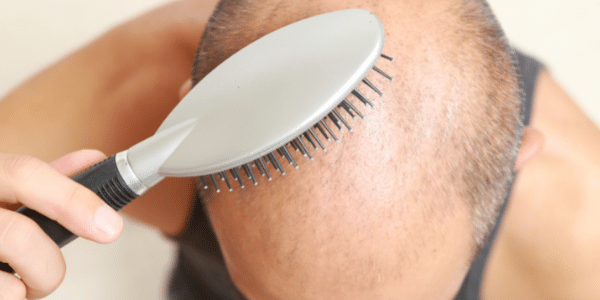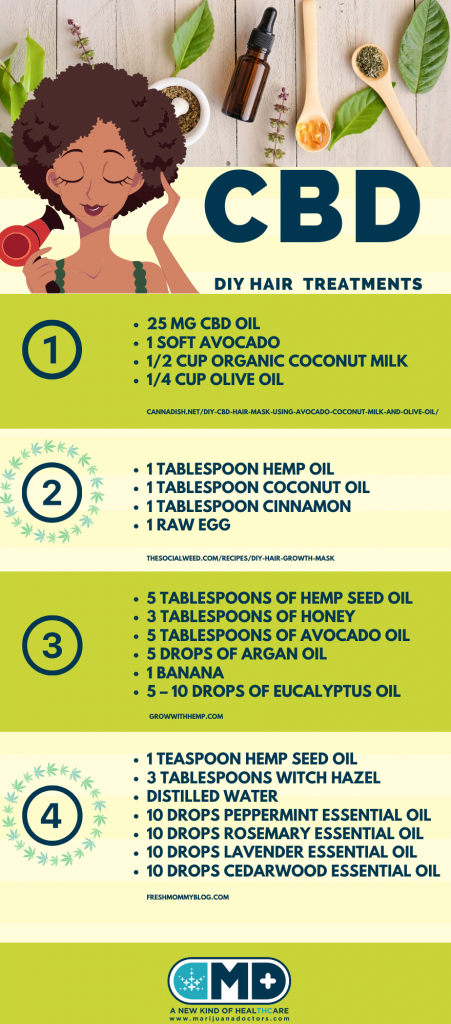
There is more interest today than ever before, in natural remedies. If you have been using full-spectrum cannabidiol as a wellness supplement, you may be wondering about other uses of CBD. And one of the areas that people are very interested in exploring right now is CBD products for hair care.
Healthy hair starts at the scalp. If your skin is dry, or not well nourished, the hair follicle or root will not be strong. That means it breaks off easily when you are brushing it or styling it. And while the average person loses about 50 to 100 hairs per day, you can tell when hair loss isn’t normal.
Have you noticed that you are losing a lot more hair than normal? Your brush may be fuller, or you may be seeing more hair in your hands after shampooing in the shower. If you are concerned about hair loss, you should know a few facts to help you figure out where the problem is coming from. And to assess whether using CBD hair products and supplements may help reduce hair loss.
It is common knowledge that you can lose hair when you are stressed. Have you ever heard of the term “pulling out your hair?” While no one wants to voluntarily yank out their own follicles, there are three types of hair loss that are linked to stress.
That whole “pulling out your hair” saying? That stems from this clinical condition. Trichotillomania is a mental disorder where someone cannot stand the feeling, or appearance of having bodily hair. It is linked to a stress and grief response.
Some people with trichotillomania say that their anxiety is relieved by pulling out their own hair. This also includes eyelashes, eyebrows, and hair on top of their head. It may be that a pain response helps distract them from high levels of anxiety. Individuals may have the disorder, but it is hard to detect, because they are only small amounts of their own hair.
This condition is when the stress hormone saturates the scalp and stops healthy hair from growing. When someone has telogen effluvium, stress hormones like cortisol penetrate the scalp. This makes hair follicles go into hibernation or a rest phase. This makes them fall out more easily while washing or brushing their hair.
This type of hair loss is caused by an immune system attack against hair follicles. This is not related to a formally diagnosed auto-immune disease, but high-stress levels can bring it on. And hair typically regrows normally after stress levels have decreased for the individual.

If you are experiencing an unusual amount of hair loss, it might be due to a prescription medication that you are currently taking. There is a wide range of prescriptions and categories that are known to cause hair loss.
Some of the most common drugs that can lead to thinning hair include:
Patients who are undergoing cancer therapies may also lose some or all of their hair. The effect of radiation therapies can make the skin on the scalp feel dry and tender. It can also make the temperature of the scalp increase, which can damage hair follicles. Some people getting cancer treatments wear cooling caps or hats that look like ice packs to help regulate scalp temperature and reduce hair loss.
Not enough of one type of vitamin, and you can experience accelerated hair loss. But too much of a certain vitamin can also contribute to hair loss. For example, people who eat a lot of fish may have higher levels of vitamin A than they need. Vitamin A toxicity can make the skin rough and dry and can contribute to hair loss.
Nuts are a healthy snack because they are high in a nutrient called selenium. Certain types like Brazil nuts and even certain organ meats and seafood are also high in selenium. Too much selenium, however, can cause fatigue, irritability, nausea, and hair loss.
Are you the kind of person that tries every trending diet? If you have a habit of crash dieting, you can experience regular vitamin deficiencies. You may not be getting enough protein, fatty acids, or zinc. Hair loss due to nutritional imbalance can be corrected, though. And after you are eating a healthier diet, hair will start to grow back in and thicker naturally.
Blame your mom! Did you know that male and female pattern baldness can be inherited? It can be passed down from one generation to the next, usually on the mother’s side of the family. Although scientists aren’t sure why thinning hair and baldness can be “all in the family.”
All men and women will experience some hair loss with age. Genetic hair loss for men starts around the temples or the front hairline and proceeds with an M-shaped thinning pattern. But for women, hereditary hair loss isn’t always focused on one area. It can thin all over the head and scalp evenly.
Genetic hair loss is the most difficult to treat. And often, the hair loss cannot be regrown. But there are steps that you can take to make your scalp healthier and slow down the progression of hair loss. This is usually done through lifestyle changes, diet, prescription medications, and clinical-grade hair and scalp products.
Diseases that make the human immune system malfunction can also cause hair loss. When you have an autoimmune disorder, your own body identifies certain parts to be “the enemy.” And then attacks it with inflammation and other immune responses.
Some autoimmune diseases that are known to cause hair loss include:
According to the American Thyroid Association, more than twenty million people in the United States suffer from a thyroid disorder. People experiencing hair loss because of a thyroid imbalance will not see improvement until they have corrected the level of thyroid hormones in their bodies. Some medications used to treat auto-immune disorders can also cause hair loss.
Auto-immune disorders attack hair at the follicles or through the scalp. They can damage or erode the hair follicle root and stop natural scalp oils that condition the hair. Without those elements to keep the hair healthy and strong, it becomes brittle and weak at the root and easily falls out.
Many people are surprised to learn about one common side effect of smoking: hair loss. In 2020, a new clinical study was published called “Implications of cigarette smoking on early-onset androgenetic alopecia: A cross-sectional study.” The results were surprising.
The researchers discovered that 425 out of the 500 participants had hair loss. They were also smokers. And they had lost more hair than nonsmokers in the study. The Hamilton-Norwood scale measures hair loss. At grade 3 hair loss, a deep recession or widow’s peak can be noticed along the hairline. And at grade 4 on the Hamilton-Norwood scale, there is visible balding.
The study revealed that 47% of smokers had grade 3 hair loss. Another 24% of smokers had grade 4 hair loss. Only 10% of non-smokers developed hair loss at the grades 3 or 4 level. Researchers are not entirely sure why there is such a strong cause-and-effect link. But nicotine and the chemicals in tobacco products are known to cause oxidative stress and reduce blood flow by constricting vessels. Two factors that can damage hair follicles and cause hair loss.
There are many ways that cannabidiol may help people with hair loss. First, full-spectrum or clinical grade CBD can help reduce stress. Less stress means lower cortisol levels, which can mean less hair loss and problems with thinning hair.
Cannabidiol may also help condition the scalp. One of the miraculous things about CBD is its high antioxidant properties. Our skin is subject to the effects of free radicals every day. Think of free radicals like toxins or pollutants in the air, water, and even in some types of foods we eat and the cosmetics we use. These free radicals attack healthy cells in the scalp.
Applying a high-quality CBD hair product or natural hemp oil to the scalp could help recondition the skin and make it healthier. And less prone to dryness that can damage hair follicles. It is all about creating the best and most healthy skin on your scalp to nourish solid roots and prevent breakage and hair loss.
Having a full head of hair is something you may not appreciate until you start to experience thinning hair. There are treatments that you can buy with hemp oil that can help keep your scalp conditioned. This can help reduce thinning hair and baldness.
If you don’t want to buy any hair treatments, you could make your own. Some people think that homemade hair masks are much healthier. And you can not only condition your scalp but also provide nourishment and restore lost proteins to your hair.
Check out these CBD hair treatments or mask recipes that you can try at home. Combine essential oils to create your leave-in spray (recipe #4) to protect it from heat styling damage.

No Information on MarijuanaDoctors.Com should be used to diagnose, treat, prevent or cure any disease or condition. You can view our Full Disclaimer here.